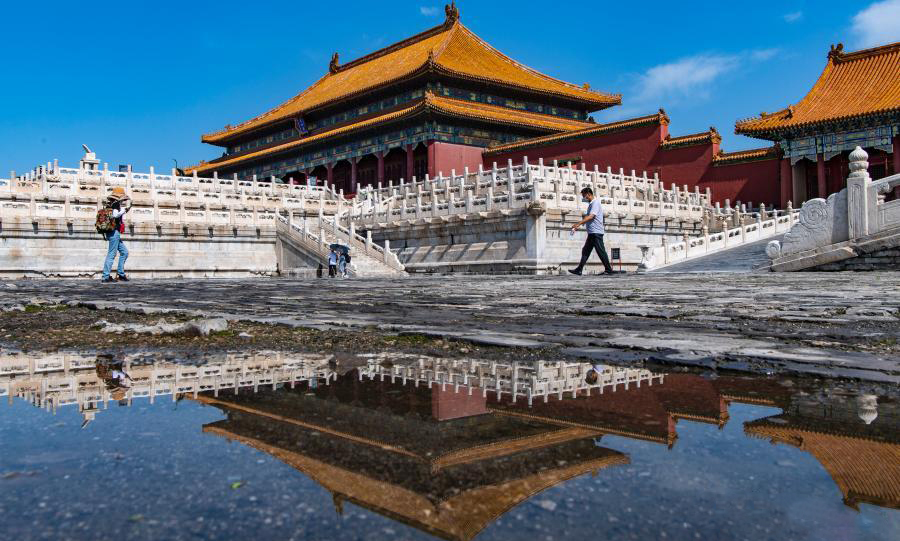Interview: FTAs inject momentum into Cambodia's economic growth: experts
PHNOM PENH, July 13 (Xinhua) -- Free trade agreements (FTAs) have injected momentum into Cambodia's economic growth, attracting investment and providing larger market access to made-in-Cambodia products, experts said on Wednesday.
Hoe Ee Khor, chief economist of the ASEAN (the Association of Southeast Asian Nations) +3 Macroeconomic Research Office (AMRO), said the Regional Comprehensive Economic Partnership (RCEP), the Cambodia-China FTA (CCFTA), and the Cambodia-South Korea FTA (CKFTA) have been providing a good opportunity for Cambodia to further strengthen investment flows and expand products to other export markets beyond the United States and the European Union.
"Despite facing a challenging environment, foreign direct investment (FDI) inflows into Cambodia are expected to remain stable," he told Xinhua in an e-mail.
Khor said, according to the AMRO's latest forecast, the Cambodian economy is expected to steadily recover and projected to grow by 4.9 percent in 2022, as the country's strategy to live with COVID-19 and high vaccination rate have facilitated the resumption of businesses, especially in the service sector.
He said Cambodia's inflation is forecast to rise to 6.4 percent this year, much higher than the 2.9 percent last year, due to a surge in global oil prices.
Cambodian Ministry of Commerce's undersecretary of state and spokesman Penn Sovicheat agreed that the FTAs have injected a fresh impetus into the development of Cambodia's economy.
"Under the RCEP and the CCFTA, we're confident that Cambodia's export volume to China and other RCEP member countries will be bigger, especially the exports of potential agricultural produce such as rice, cassava, bananas and mangoes, industrial products, and processing goods," he told Xinhua.
RCEP comprises 15 Asia-Pacific countries including 10 ASEAN member states -- Brunei, Cambodia, Indonesia, Laos, Malaysia, Myanmar, the Philippines, Singapore, Thailand and Vietnam -- and their five trading partners, namely China, Japan, South Korea, Australia and New Zealand.
This mega-regional FTA will eliminate as much as 90 percent of the tariffs on goods traded among its signatories over the next 20 years.
World Bank senior country economist Ly Sodeth said Cambodia's new investment law, together with effective FTAs, has helped boost the country's post-pandemic economic recovery.
"We look at RCEP as the longer benefit... Cambodia is the third country that will gain the most from RCEP after Vietnam and Malaysia," he said in a press conference in Phnom Penh on June 30.
For the CCFTA, Sodeth said Cambodia has enjoyed the export of products, particularly agricultural commodities such as cassava, mango and banana, to China with tariff concession.
Photos
Related Stories
- Cambodia's e-commerce market value sees fast growth during COVID-19 pandemic
- China, Cambodia to further enhance ties, cooperation in various fields
- China key contributor to global and regional peace, stability, development -- Cambodian academics
- Cambodia, China ink deal to build COVID-19 vaccine filling factory in Cambodia
- War-left U.S. bomb discovered in southern Cambodia: official
Copyright © 2022 People's Daily Online. All Rights Reserved.









